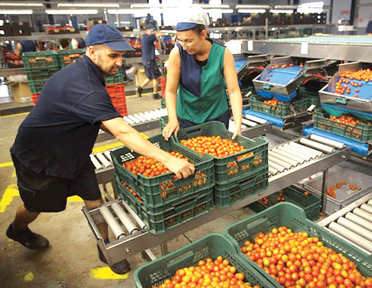|
Reinstating GSP Plus:
‘Lanka needs to improve human and labour rights record’
The European Union delegation which began discussions on reinstating
the GSP Plus trade concessions to Sri Lanka has called upon the
government to turn commitment to reality in adhering to the United
Nations conventions.
 “We want Sri Lanka to improve its record on human and labour rights,
good governance and environmental concerns to be eligible for the new
GSP Plus trade concessions,” EU Ambassador to Sri Lanka, David Daly told
a media briefing last week. “We want Sri Lanka to improve its record on human and labour rights,
good governance and environmental concerns to be eligible for the new
GSP Plus trade concessions,” EU Ambassador to Sri Lanka, David Daly told
a media briefing last week.
In 2010, the EU withdrew the preferential trade concession granted to
Sri Lanka due to its failure to implement UN conventions.
The former regime dismissed charges that it failed to comply with the
eligibility criteria. Sri Lanka's poor human rights and governance
record were the main reason for the removal of the trade concessions.
Beneficiary States are mandated to comply with the 27 UN conventions on
human rights, good governance, environmental protection and labour
rights.
Around 170 countries benefited from the former GSP Plus scheme.
The number of beneficiaries under the new scheme will be reduced to
around 85 based on the income index of the World Bank.
“Sri Lanka will get rich and graduate out of the GSP Plus scheme by
reaching the status of an upper income country.
It is like walking away from the hospital”, Daly said.He said that
the EU is not happy with the human rights and good governance record of
Sri Lanka so far.
The Union was prepared to work together on a process with the hope
that the new government was keen to make positive changes. “At this
stage the EU does not consider that everything in Sri Lanka is right.
There is much more to be done for Sri Lanka to be eligible for the
new scheme,” Daly said.
With regard to the ban on fish exports from Sri Lanka to the EU, the
Ambassador said that the GSP Plus and the fish ban issues are governed
by the EU legislative framework.
“Sri Lanka should take measures to address issues on the ban and
comply with the regulations,” Daly said.
The EU is Sri Lanka's largest export market accounting for around 26
percent of total exports. Sri Lanka has a trade surplus of around Euro
one billion with the EU.
Bilateral trade between Sri Lanka and the EU was US$ 5.07 billion
last year, a 3.6 percent increase compared to 4.9 billion dollars
recorded in 2013, according to Commerce Department sources.
The EU is a major market for Sri Lanka's apparels which accounts for
around 45 percent of its exports. Countries applying for the scheme
should meet quality standards.
Small and medium sector enterprises will have to focus more on
quality.
Sri Lanka's exports to the EU have improved.
It has understood the importance of constant improvement and
competitiveness but there is no room for complacency when trading with
the EU, Daly said.
The EU is working with the Sri Lankan government to address key
issues such as export trade strategy, trade facilitation, compliance
standards and sector specific value chain development.
“We are not expecting perfect implementation at the outset but Sri
Lanka needs to demonstrate a full commitment to implement the
conventions.
There should be a serious political commitment to be eligible for GSP
Plus,” Deputy Director General, Trade, European Commission, Brussels,
Nikos Zaimis said.
Sri Lanka must give the EU a binding undertaking. It has to submit
reports to the EU and ILO on time and cooperate with the EU, Zaimis
said.
When a country applies for the GSP Plus scheme it takes around 10
months to complete the process.
The EU has around six months to analyse the application and then the
Council of the EU and the EU parliament discuss the application for
around four months.
“It is a complex process due to many procedures that have to be
followed. It is not an easy task.
It is not a free lunch for a country applying for the scheme,” Zaimis
said.
The EU has a monitoring mechanism to ensure continuous dialogue with
beneficiaries and identify areas which need to be improved.
Discussion are also on to reinstate the trade concession scheme which
enables Sri Lanka to export to EU markets duty free.
Sri Lanka was one of the first beneficiaries of GSP Plus in 2005.
The new GSP Plus concessions will be for a ten-year period.
Discussions were also centred on bilateral issues such as facilities
for investment, import duties and fish exports to the EU.
Exporters hailed the move to commence discussion on retrieving the
trade benefits which will help Sri Lanka to enhance exports.
President, National Chamber of Exporters, Rohan Fernando commended
the move to resume GSP Plus which will boost exports to the region. Sri
Lanka continues to benefit from the normal GSP since 1970.
- LF
|

